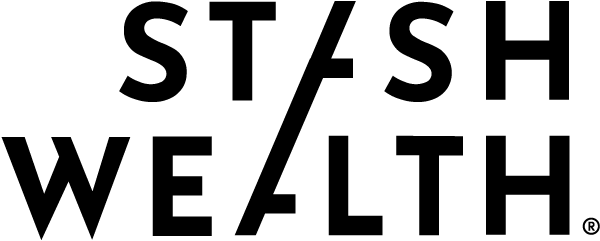How much money should I have by 40?
We have 3 goals for you by the time you hit 40: 1) Student loans are 100% paid off. 2) You have an investment account open. 3) You are using a high-reward credit card like an adult. The how? Keep reading.
Nobody asks how much money they should have by 20 years old. 20 feels like you’re still a kid. You’ve got your whole life ahead of you to save. But 40? That’s a different story. A few more gray hairs, a few fewer nights out, and a few more times you find yourself asking, "How much should I have saved by now?"
It’s well past time to get your financial sh*t together. Playing catch-up sucks.
How much money should I have by 40?
With just a basic amount of research, we got a few different answers from several reputable brands for, “How much money should I have by 40?” T Rowe Price suggests you have your current salary doubled in savings by 40 and triple your current salary saved by 45. Money Under 30 says if you make $100,000, you should have $260,000 saved for retirement by 40. Ally says you should have “your income saved/invested by 30, double income saved/invested by 35, triple income saved/invested by 40.”
So if I make $100,000/year as a HENRY, I should have either $200,000 saved/invested by 40, $260,000 saved/invested by 40, Or $300,000 saved/invested by 40. Cool. Cool. Cool.
3 areas to think about
We’re pretty reputable too (just ask Forbes, Business Insider, Refinery29, CNBC, Wall Street Journal, IBM, Purewow, Cheddar, Huffington Post, you get it).
We think these hard and fast rules for everyone are garbage. Giving a flat number for everyone, regardless of how or when they want to retire, takes the human out of financial advising. And as a human searching how much money you should have by 40, you’ve earned a human answer. Here are a few points for you to consider:
Emergency Fund
Your Emergency Fund is your first line of defense, not your only line of defense. When you're young, it should cover 3 months’ worth of your fixed expenses (we’re talking rent, mortgage, groceries, utilities, and anything else that would be hard to turn off if sh*t hit the fan). 3 months is the average time it takes a millennial to find a new job. As you age, the number of months you have in your Emergency Fund may need to increase to account for the fact that it may take longer to replace your income. Once you hit retirement, you can drop back down to three months.
What retirement looks like for you
When people ask us "How much money should I have saved by 40?" our answer is often, "It depends." Are you more of the cabin in the woods on a quiet lake, off-the-grid type? Or traveling 4 months out of the year and flying first class to get there? And what about visiting the kids/grandkids?
General rules of thumb are dangerous to follow when they don’t account for what you actually want.
Goals-based spending
Take a look at your current income and plan to replace no less than 80% of it in retirement. Let’s say you make $100k/year. You’ll need around $80k every year that you plan to be retired. Most people are planning for 30+ years (65-95 years old.) This means you’ll need to have $2.4M saved by your target retirement date.
But what if you’d rather take the occasional sabbatical instead of planning for a classic 30-year retirement? Maybe you love your job and never want to stop working because you’d be bored if you did. If the point of saving is to spend, spend in a way that aligns with your goals. Online calculators can come in handy here to determine if you’re on track for your ideal retirement. We recommend this one.
Financial goals before 40
Here are some financial boxes to check by the time you're there:
Student loans are 100% paid off.
You have an investment account opened where your money is working harder for you than it would in a standard savings account at a brick-and-mortar bank.
You are using a high rewards credit card like an adult (with no revolving credit card debt.)
We know you came here asking, “How much money should I have by 40?” and while you were probably expecting a clean number like $1M, $2M, $8M, whatever,
we’d rather give you something that speaks directly to you and what you want out of the rest of your life.
We are planners, after all.
If you’re a HENRY who wants a professional’s help in achieving those goals or could use a second set of eyes ensuring you are doing the best you can with what you’ve got, check out the Stash Plan for Individuals or the Stash Plan for Couples. Feel free to book a call with a member of the team to learn more.
Stash Wealth provides financial plans designed to assist high earning young professionals build and manage their wealth.
Stash Wealth offers a pragmatic approach to financial planning and wealth management. Whether saving up for Tahiti or a Tesla, we help you achieve your short-term and long-term goals.
Written by Priya Malani
Stash Wealth, Founder & CEO
Priya is a force in the personal finance space. As an industry disruptor, she specializes in bringing the unapproachable world of money to young professionals across the country.


